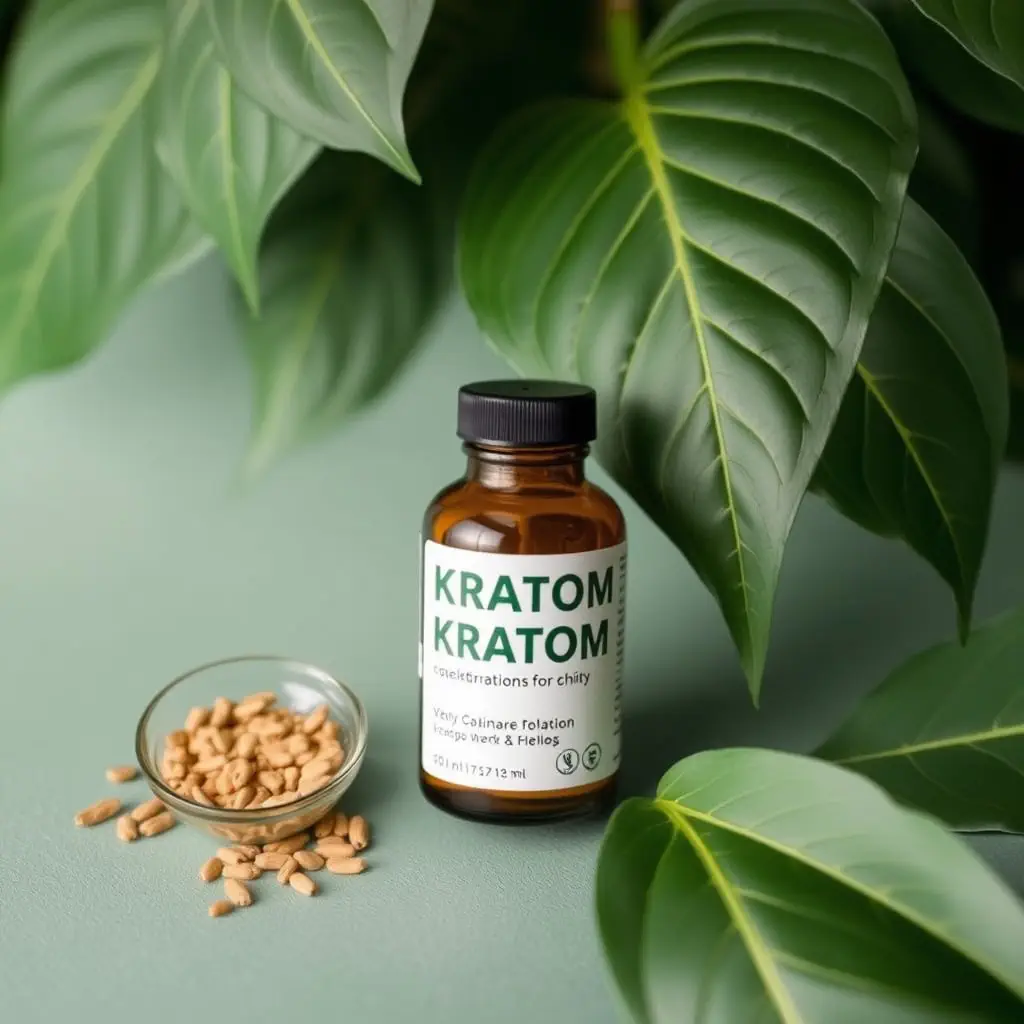Athletes exploring kratom-assisted mental clarity for performance and recovery should proceed with caution, as this natural substance from the Mitragyna speciosa tree can potentially offer focused acuity and a balanced mental state conducive to reflection without fatigue. The alkaloids mitragynine and 7-hydroxymitragynine in kratom may enhance cognitive function and mood, which are beneficial for athletes. However, the effective dosage varies with individual body composition, metabolism, and sensitivity, thus necessitating personalized approaches. Legal considerations and potential interactions with other substances must also be taken into account. It is essential for athletes to consult healthcare professionals before incorporating kratom into their training routines to ensure safe use. This approach allows for the responsible integration of kratom's cognitive benefits while maintaining a holistic recovery strategy that includes balanced nutrition, rest, and stress management, aiming to improve athletic performance through mental clarity and faster recovery times. Legal compliance and ethical responsibility are key in exploring kratom's potential role in post-training recovery and cognitive enhancement.
Exploring the integration of kratom for optimized athletic recovery, this article delves into transforming training routines. It provides a comprehensive overview of incorporating kratom-assisted mental clarity into a holistic recovery regimen, enhancing performance while ensuring safe practices. Additionally, it navigates the complex legal and ethical considerations surrounding kratom use, offering guidance for those seeking to incorporate this natural compound responsibly within their post-training recovery and mental acuity enhancement strategies. Join us as we explore the potential benefits and responsible use of kratom in an athlete’s quest for peak performance and well-being.
- Optimizing Athletic Recovery with Kratom-Assisted Mental Clarity: An Overview of Safe Practices
- Integrating Kratom into a Holistic Training Recovery Routine for Enhanced Performance
- Navigating the Legal and Ethical Landscape of Using Kratom for Post-Training Recovery and Mental Acuity Enhancement
Optimizing Athletic Recovery with Kratom-Assisted Mental Clarity: An Overview of Safe Practices

Athletes are constantly seeking ways to enhance their performance and optimize their recovery to maintain peak physical condition. Kratom-assisted mental clarity has emerged as a potential tool in this endeavor. Mitragyna speciosa, commonly known as kratom, contains alkaloids that may influence mental acuity and focus, which are crucial for effective training recovery strategies. When used judiciously, kratom can potentially aid in the mental aspects of recovery by promoting a state of calm concentration, allowing athletes to process their training experiences without the fog of fatigue clouding their cognitive functions.
However, it is imperative to approach the use of kratom with caution and informed guidance. Safety must be a priority when integrating kratom into an athletic recovery regimen. The optimal dosage can vary significantly between individuals, depending on various factors such as body composition, metabolism, and personal sensitivity. Moreover, adhering to legal restrictions and considering the potential interactions with other medications or supplements is essential. Athletes should consult with healthcare professionals well-versed in kratom’s effects before incorporating it into their recovery practices. By doing so, they can navigate the benefits of mental clarity provided by kratom while minimizing risks and ensuring that their overall training recovery strategies are both effective and safe.
Integrating Kratom into a Holistic Training Recovery Routine for Enhanced Performance

Incorporating kratom into a holistic training recovery routine can significantly contribute to enhanced performance and mental clarity for athletes and individuals engaging in rigorous physical activities. Kratom-Assisted Mental Clarity is a pivotal aspect of this approach, as the mitragynine and 7-hydroxymitragynine alkaloids found in kratom leaves can promote focus and cognitive function. These compounds are known to interact with the brain’s opioid receptors, potentially elevating mood and sharpening mental acuity. By integrating kratom into your recovery regimen, you may experience a reduction in fatigue and an improvement in overall well-being, which can be instrumental in managing the mental demands of training and competition. It’s crucial to approach this integration with caution, adhering to recommended dosages and consulting with healthcare professionals to ensure safety and efficacy. When used responsibly as part of a comprehensive recovery strategy that includes proper nutrition, rest, and stress management techniques, kratom can be a valuable tool for those seeking to enhance their mental clarity and support their physical recovery processes post-exercise. This holistic approach aims to optimize the body’s natural healing mechanisms, allowing individuals to train harder and recover faster with a clear mind, ultimately leading to improved performance outcomes.
Navigating the Legal and Ethical Landscape of Using Kratom for Post-Training Recovery and Mental Acuity Enhancement

When integrating kratom into post-training recovery and mental acuity enhancement routines, individuals must navigate a complex legal and ethical landscape. Kratom, derived from the leaves of the Mitragyna speciosa tree, has gained attention for its potential to support physical recovery and sharpen mental clarity. Its alkaloids, primarily mitragynine and 7-hydroxymitragynine, are believed to play a role in these effects. However, the legal status of kratom varies by jurisdiction; it is crucial for users to be well-informed about their local laws. In some regions, kratom is fully legal, while in others, it may be subject to restrictions or outright bans. Users must respect and adhere to these regulations, ensuring they are not violating any laws when using kratom for recovery or cognitive enhancement.
Ethically, the use of kratom should be approached with caution and responsibility. While anecdotal evidence and some scientific studies suggest kratom-assisted mental clarity can be beneficial, its long-term effects on mental health and cognitive function are still under investigation. Users must consider their individual health profiles and consult healthcare professionals before incorporating kratom into their recovery strategies. Ethical use also involves a commitment to avoiding substance misuse and understanding the potential for dependence or adverse reactions. By staying informed, respecting legal frameworks, and prioritizing ethical considerations, individuals can responsibly explore kratom’s role in enhancing post-training recovery and mental acuity.
In this comprehensive exploration, we’ve delved into the multifaceted role of kratom in optimizing athletic recovery with a focus on enhancing mental clarity. By integrating kratom responsibly into a holistic training routine, athletes can potentially experience improved performance and well-being. However, it is imperative to navigate the legal and ethical considerations surrounding its use. As we conclude, it’s clear that with careful consideration and adherence to safe practices, kratom-assisted mental clarity can be a valuable component in an athlete’s recovery strategy. Prospective users should seek guidance from medical professionals and prioritize informed decision-making within the bounds of the law. With the right approach, kratom may serve as a beneficial tool in the pursuit of athletic excellence and recovery.






